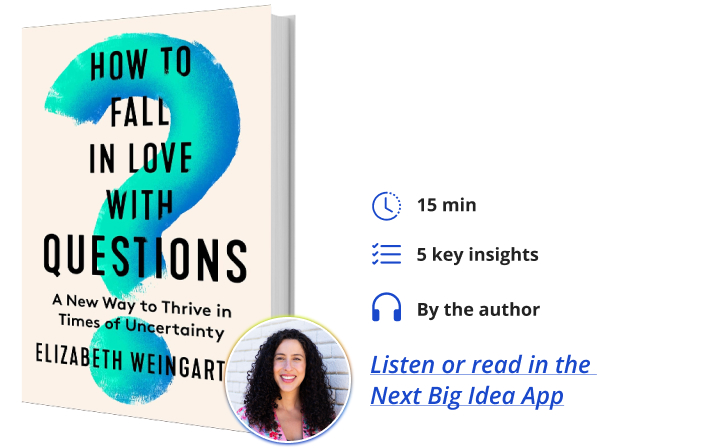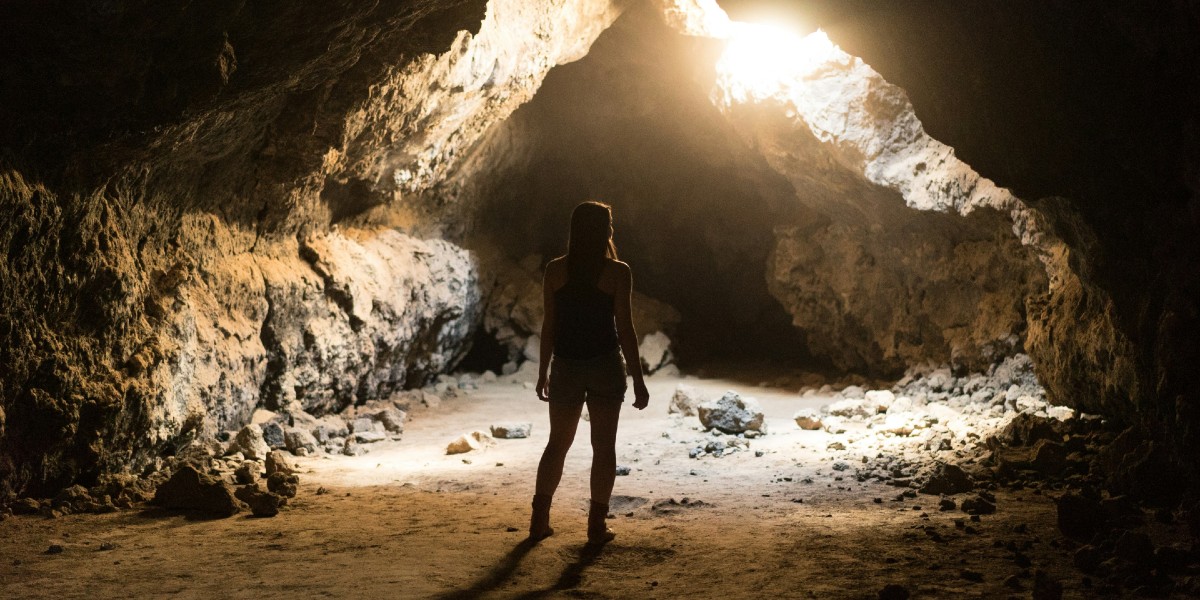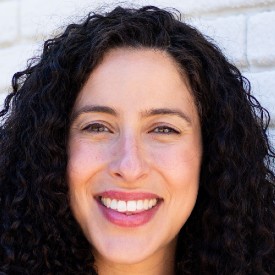Elizabeth Weingarten is a journalist and applied behavioral scientist. Her career has included stints reporting and researching at traditional media outlets like The Atlantic, building a policy program at the think tank New America, working in the applied behavioral science field at the consultancy ideas42, and leading insights programs inside tech companies.
What’s the big idea?
Uncertainty is a huge topic that people from many disciplines have explored across millennia. Science, art, history, philosophy, religion, and poetry are among the fields that converge to reckon with how best to cope with the unknowable. If you’re struggling with the unknown, it might be time to patiently, courageously find love for the questions you want answered.
Below, Elizabeth shares five key insights from her new book, How to Fall in Love with Questions: A New Way to Thrive in Times of Uncertainty. Listen to the audio version—read by Elizabeth herself—in the Next Big Idea App.

1. Forget about “embracing uncertainty.” There’s a better way to thrive in the unknown.
To me, telling someone to “embrace uncertainty” is one of the biggest offenders. Try offering that advice to someone who is struggling with questions about their marriage, wondering how to cope with the death of a loved one, or fearing the results of a biopsy.
There is a better strategy: loving the questions. In February 1903, Austrian poet Rainer Maria Rilke received a letter from 19-year-old aspiring poet Franz Kappus. It kicked off a years-long correspondence that became Letters to a Young Poet. Since its first publication in 1929, this book has influenced thousands—including Lady Gaga.
Like many 19-year-olds, Franz Kappus was bursting with questions. He posed many to Rilke. Instead of giving him answers, Rilke writes: “I want to ask you, dear sir, as best I can, to have patience about everything that is still unresolved in your heart; try to love the questions themselves, like locked rooms, like books written in a truly foreign language. Don’t look for the answers now: they cannot be given to you yet because you cannot yet live them, and what matters is to live everything. For now, live the questions.”
How is loving the questions different than embracing uncertainty? Here, it helps to know a little more about Rilke’s take on love. In another letter to Kappus, he writes: “For one human being to love another human being: that is perhaps the most difficult task that has been entrusted to us, the ultimate task, the final test and proof, the work for which all other work is merely preparation.” It is essential, he writes elsewhere, “trust in what’s difficult,” to turn toward rather than away from the challenges life presents.
Just like sustaining a committed relationship can be both painful and rewarding, loving the questions acknowledges that communing with uncertainty is evolving, frustrating, delightful, stultifying, and freeing. That’s expected. It’s what we call experience.
Uncertainty can feel awful partly because we’ve been told to reframe it into something purely positive. This is not only unreasonable but a surefire way to increase suffering during an already challenging period.
2. We’re living in one of the most difficult moments to tolerate uncertainty.
Around the world, the norms of government and public life are under siege and falling fast. Deep fakes and misinformation overwhelm social media. The growing threat of climate change, seismic shifts promised by innovations like AI and biotechnology, intensifying political polarization, and mushrooming global conflict seem to point to a similar conclusion: We are in an accelerating age of uncertainty.
“You can think of fast, easy answers like ultra-processed information that was extracted and condensed to excite our tastebuds.”
With our smartphones in hand, we’ve never had access to more information about the uncertainty of the world. We’ve also never had more access to fast, easy answers. According to research, we are getting worse at tolerating uncertainty. There may be a link between smartphone penetration and this atrophying skill. We’re biologically wired to want to reduce uncertainty, so it’s seductive to seek certainty online. The problem is that many of us have become addicted to fast, easy answers sold to us by a group that I call the Charlatans of Certainty. They often tie their promises directly to the deepest and most meaningful questions of the people who they want to pull in. They’re often purposefully lying or manipulating others into believing they have all of the answers.
We know that ultra-processed foods aren’t great for us. You can think of fast, easy answers like ultra-processed information that was extracted and condensed to excite our tastebuds, so we want to consume more and more. Charlatans of Certainty often take information we want, condense it, and strip it of its nutrient value. What we get is the illusion of certainty on a complex topic, like how to find a sense of purpose and meaning, that keeps us coming back for more content. It could be in the form of a social media post, a weekend retreat, or a never-ending series of courses. Ultimately, this kind of content leaves us feeling addicted and unsatisfied, and the only way to fill the void is to continue paying or consuming it.
3. Searching for fast answers to our deepest questions can blind us to what we really seek.
Another reason that fast, easy answers fail to satisfy us is that they aren’t what we’re really after when we’re scrolling on Instagram or watching endless streams of YouTube videos.
In the book, I tell the story of Mateo, a 20-something in recovery for a technology addiction. He’d spent years consuming endless amounts of information online to resolve questions the internet couldn’t answer. For years, he was unaware of the deeper reasons for his search.
“Their feverish search for answers and certainty was only partly about information.”
As someone who had experienced childhood trauma, he was desperate to control himself and his environment so he wouldn’t experience that kind of pain again. He figured this meant becoming someone who knew all the answers. As he spiraled deeper into addiction, he became lonelier and lonelier, more cut off from real relationships as he sought information about how to forge deep connections online.
His discovery mirrored one that many others shared with me. Their feverish search for answers and certainty was only partly about information. It was also about feeling less alone in their uncertainty and pain. What they were really seeking was connection and community.
4. Your relationship to uncertainty reflects your relationship with yourself.
Part of the reason we might be blind to what we’re really seeking when we search for answers is because we’re disconnected from ourselves.
In recovery, Mateo discovered something that echoed across my interviews: “When I’m at home in my own body and own life, I don’t need to know more than I know or be more than I am…when I can just accept reality and myself as I am, I can feel more at peace in uncertainty.”
“The act of loving your questions represents a commitment to listening and learning from yourself.”
Forging a stronger relationship with ourselves can result in a better one with uncertainty. Questions can help, acting as a kind of internal GPS to rediscovering what we want and need instead of clinging to what we think we “should” want or need according to the answers or expectations of others. The act of loving your questions represents a commitment to listening and learning from yourself. This leads to greater self-compassion and self-integrity.
5. Loving the questions requires cultivating two virtues: patience and courage.
“Patience is everything!” Rilke writes to the younger poet Kappus in another letter. The science of patience supports him in this. It’s a critical ingredient to tolerating uncertainty and loving our questions. The word patient is rooted in the Latin root pati, which means to suffer, and ferre, which means to bear. Patience is about waiting well while we suffer. It’s about holding onto a difficult question without giving up on it. Luckily, there’s a whole science, led by psychology professor and researcher Sarah Schnitker, to help us harness the uncertainty in our lives as a propulsive force.
One caveat: Patience is not, by itself, a sufficient tool for pursuing goals and breaking free from the paralysis of uncertainty. Sometimes, we need courage. The importance of cultivating courage alongside patience is also borne out by research. According to researchers, courage is the virtuous sibling of patience; they counterbalance, encouraging us to stay between reactive recklessness and disengaged passivity.
Patience and courage help us regulate our emotions in the uncertain pursuit of goals and in the murky space of unanswered questions.
To listen to the audio version read by author Elizabeth Weingarten, download the Next Big Idea App today:
































